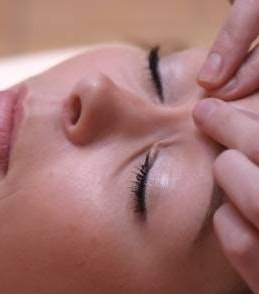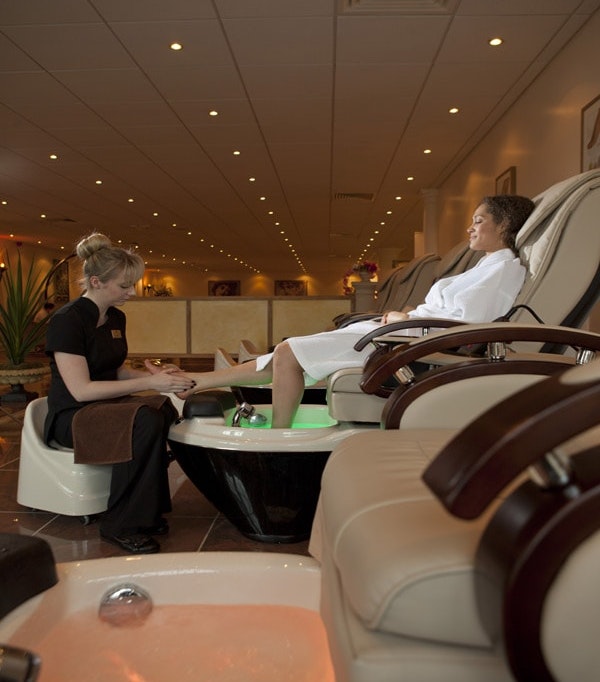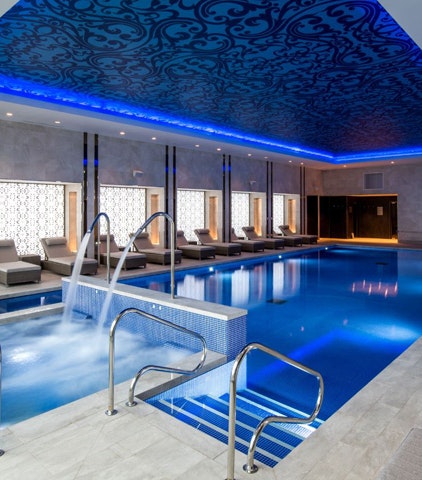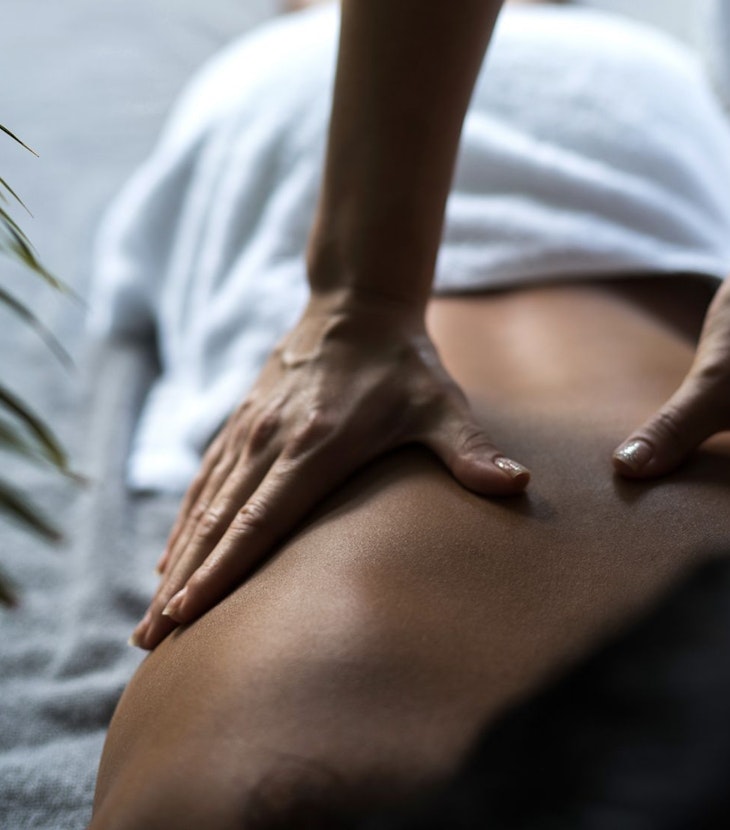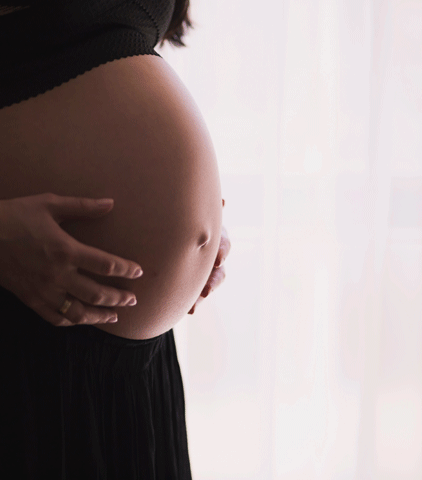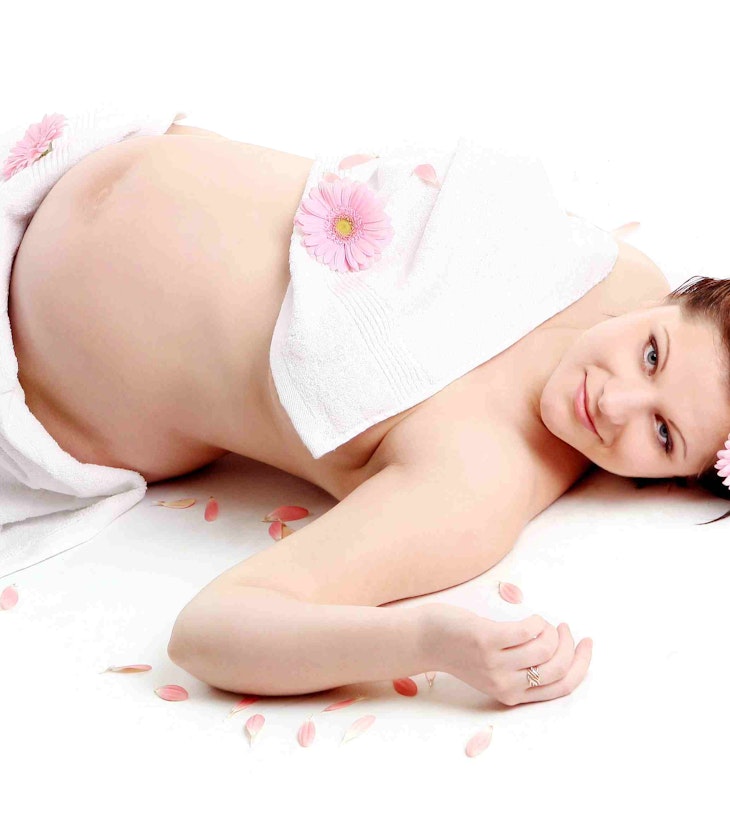
Visiting a Spa in Pregnancy: The Do’s and Don’ts
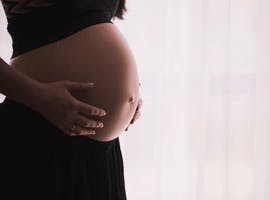
A visit to the spa can be a welcome treat during pregnancy. However, there are some important things to consider before booking a spa day or longer spa break. In this guide, we take a look at what you can enjoy, and what you must avoid.
When can I go to a spa during pregnancy?
Many spas have restrictions on offering treatments to women in their first 12 weeks of pregnancy or from 30 weeks on. So, do tell the spa ahead of time that you are pregnant and ask your doctor for advice if you have any doubts or concerns.
Can I have a massage while pregnant?
You can, but certain areas of the body (tummy, sacrum/lower back, and the back of the ankles) should not be massaged early and late on in the pregnancy, particularly up to the end of the first trimester and from week 30 onwards. Some pregnancy treatments include some gentle tummy massage in the interim period, depending on the spa’s policy and your individual needs.
Do ask what training and experience a spa’s therapists have in pre-natal massage techniques. A good sign that you’re in capable hands is when a spa offers pregnancy-specific packages and treatments, not just normal packages that just happen to be suited to a mum-to-be.
Be mindful that a properly trained spa therapist should never ask a pregnant woman to lie completely flat on her back for a spa treatment. This is particularly crucial at 30+ weeks, or in the case of any high-risk pregnancy. The expectant mum should ideally lie on the massage table in a similar way to how a pregnant woman is taught to sleep: On her side, or slightly elevated, propped up and supported by cushions.
Do ask what type of support you’ll get. Some spa brands have created special body support systems: Elemis, for example, massages pregnant women on huge custom-made beanbags on the floor to make the experience as comfortable and safe as possible. Other spas have ‘body pillows’ that feature a gap allowing the pregnant woman to face safely down on the massage bed. In a properly trained spa therapist’s hands, this can be comfortable and relaxing for women who don’t suffer from lower back pain. Most spas will carry out their pregnancy spa treatments while the woman is lying on her side or slightly sitting up.
Oils and creams used in the massage should ideally be organic, or at least fragrance-free (pregnancy can heighten the sense of smell and trigger nausea in anyone suffering from morning sickness). Stimulating aromatherapy essential oils or strongly detoxifying ingredients, such as algae, should be avoided. Certain spa brands have specially formulated products and treatments for pregnancy. For example, Elemis Nurturing Massage for the Mother-to-Be is considered safe and gentle throughout a woman’s pregnancy. Read more in our pregnancy massage guide.
Can I have a facial when pregnant?
You can and, indeed, certain types of facial can be beneficial. However, there are a few things to consider.
When having a facial, do be sure not to have one that includes anti-ageing retinoids (commonly used to help combat wrinkles and pigmentation issues). This vitamin A derivative can be harmful to the foetus in high doses (remember that up to 60% of products get absorbed into the skin and enter the bloodstream). Besides, the combination of hormonal change and harsh ingredients could aggravate your skin sensitivity, even if you have used the same products many times before. Other things to avoid include chemical peels and laser treatments.
The good news is that there are pregnancy facials tailored specifically to your needs. Read more in our pregnancy facial guide.
Can I have a manicure or pedicure while I’m pregnant?
Again, these treatments are fine for pregnant woman and can be good options if you don’t feel up to a face or body treatment. Many pregnant women prefer to avoid varnishes that contain toluene, phthalates and formaldehyde, as there can present a health risk, albeit a very minor risk. Also, be sure to check the treatment room is well ventilated. An alternative option is just to have your nails trimmed and shaped.
Dietary needs
Do let the team at SpaSeekers know about any special dietary requirements when you book, so that we can pass on the message to your chosen spa. Pregnancy spa packages tend to include exclusions, such as soft cheese etc. However, be aware that you may need to double check with the kitchens prior to your order if dining as part of a more relaxed baby shower party. It’s better to be safe and that way you can relax and celebrate the exciting news with friends! Click here for baby shower packages.
Some spa don’ts for pregnant women
The use of stimulating heat is contraindicated for expectant mothers, so it is safest to give the spa’s hydrotherapy (wet area) of a spa a wide berth, not least because this area can be slippery underfoot.
Spa facilities to avoid include:
- underwater or overwater massage jets in swimming pools
- saunas and even cooler sanariums
- Jacuzzis, hot tubs and whirlpools
- tanning beds
- Rasuls (mud chambers)
The good news is that cold water can provide cooling anti-inflammatory relief for swollen ankles, calves and hands. Many spas offer cool ‘tropical showers,’ under which you can place just your lower legs, but be sure to hold on to a hand rail to keep you steady. Larger spas also have cooling Kneipp foot baths and ice fountains. Gently massage a handful down legs that feel hot and puffy, but be careful, as once the ice melts the floor might become more slippery.
Overall, the important thing to realise is that normal spa packages are not suitable for pregnant women. The spa pregnancy packages offered by our spas have been specially devised with the safety of your body and baby in mind.
